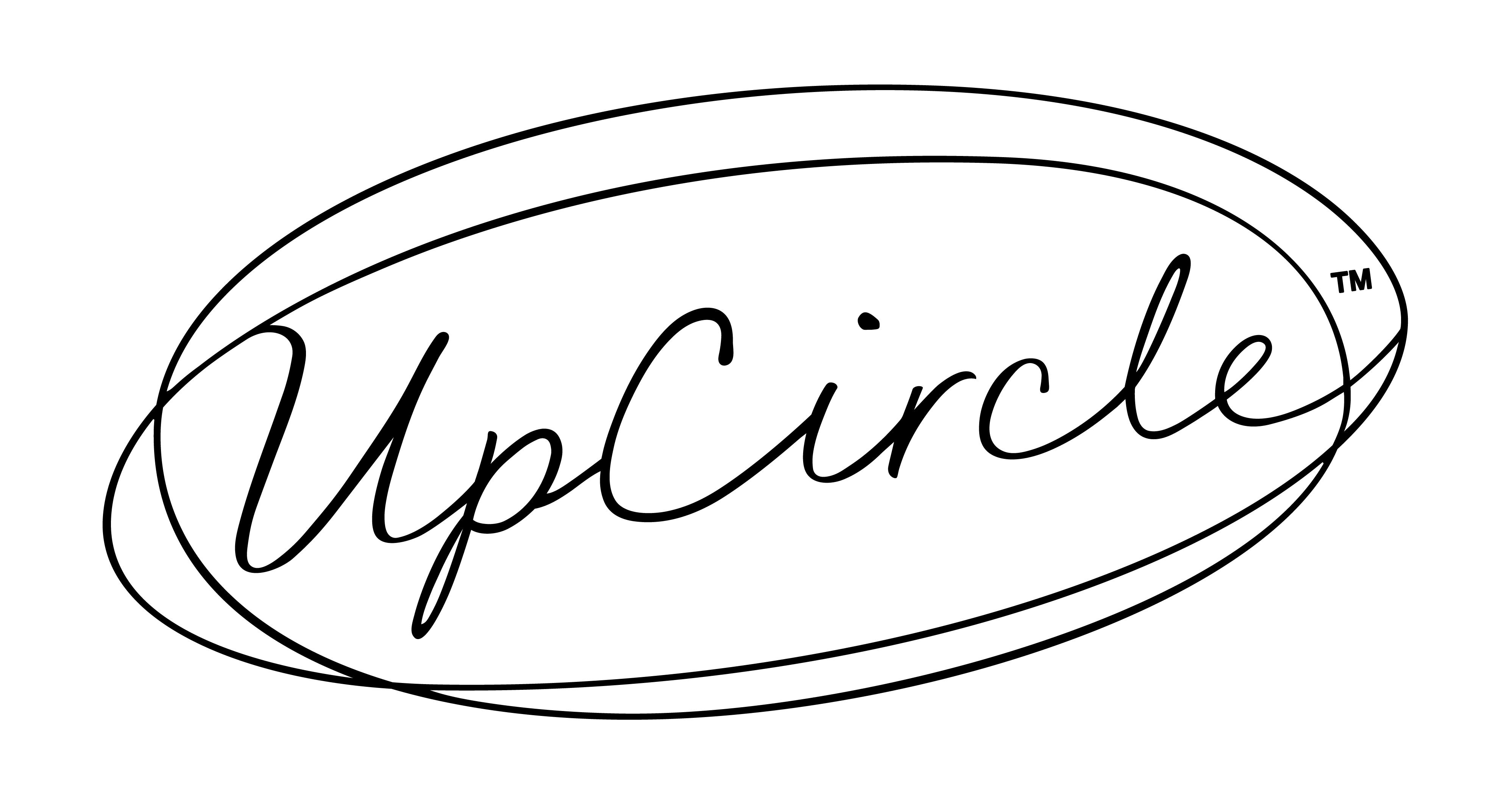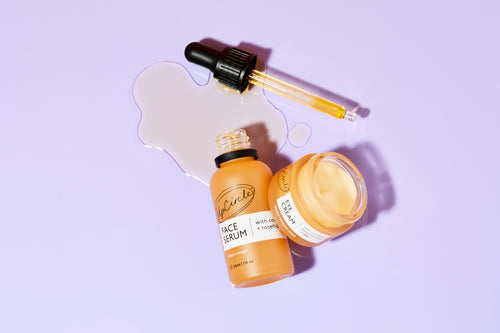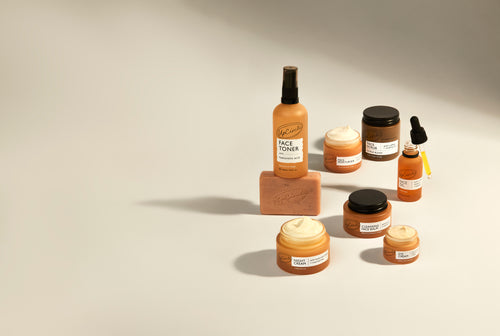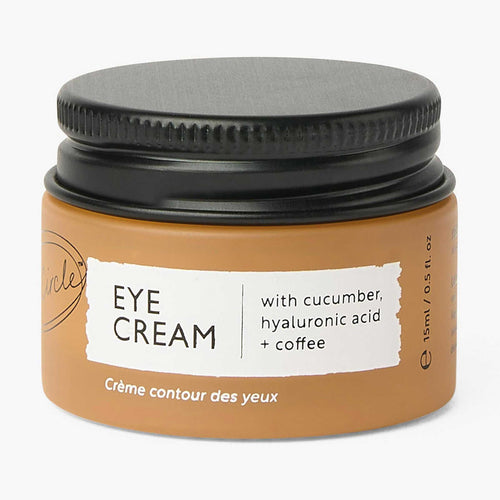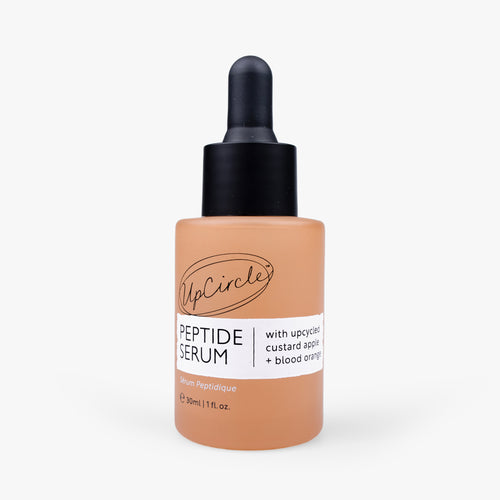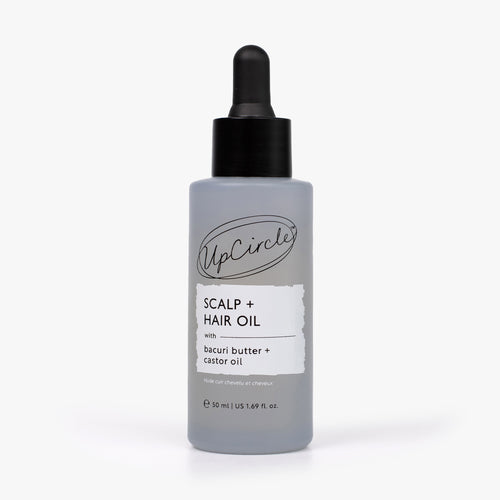What is exfoliation?
Exfoliation is the process of removing dead skin cells to reveal the newly generated skin cells underneath. Our skin naturally sheds dead skin cells but the process is slowed by factors such as ageing, hormone deficiencies, diet, stress, pollution and sun exposure.
Why exfoliate?
The older cells on the surface of the skin that are often dry and damaged result in a rough and dry appearance to the skin. Exfoliating speeds up the skin’s life cycle and helps remove this layer. Revealing younger, softer skin underneath.
Exfoliating also breaks down excess debris and oil. Removing dead skin cells and product build-up helps prevent blocked pores and blemishes.
If you want to maximise the rest of your skincare routine, exfoliating is key. Whilst your skin is clogged up with oil and dead skin cells it is less able to absorb the other products you apply. If you are not exfoliating properly, likelihood is you are not reaping maximum benefits from your serum, mask or moisturiser as the product is less able to penetrate the skin.
Exfoliating tips
How to exfoliate?
There are three primary ways to exfoliate the skin. Physically with a scrub, facial sponge or microdermabrasion machine. Chemically with acids such as glycolic or lactic. Or with fruit enzymes, such as papaya. These three exfoliation methods help speed up the cell renewal process but in different ways and with differing levels of abrasiveness.

Which type of exfoliator is best?
It is really a matter of preference and skin type. Some people can tolerate more abrasive products while others need more gentle formulations as their skin is more sensitive. For those with sensitive skin, the wrong exfoliator can leave skin red and inflamed.
Our preference is for physical exfoliators as they are better tolerated and gentler than chemical exfoliators. Physical exfoliation is particularly good for removing product build-up which can lead to breakouts.
Be wary that some physical exfoliators may contain microbeads. Microbeads are small pieces of plastic – polyethylene and polypropylene – found in beauty products such as facial scrubs and toothpaste. The small beads bypass our water filtration systems ending up in our oceans and rivers. A single tube of facial scrub can contain more than 300,000 plastic microbeads! The recent ban on microbeads has been a great opportunity for refreshing your beauty routine and taking a fresh look at the natural options for facial exfoliation.
How do I choose an exfoliator?
Always look for natural ingredients and a moisturising base. Our favourite natural exfoliators include:
Coffee exfoliator
We love coffee as a natural exfoliator due to its high antioxidant content. Antioxidants help protect the skin from free radical damage which causes ageing. The caffeine in coffee also helps reduce puffiness and dark circles due to it being a vasoconstrictor, which means it makes blood vessels smaller. Coffee is the same ph as the skin, as such, using coffee grounds as an exfoliator ensures you do not dry the skin out.
Salt exfoliator
Salt is fantastic as a natural exfoliator for its antibacterial and antiseptic properties. Salt has a large grain size and so is particularly good for rough skin on the body. If used on the face or more sensitive areas of the body it is best combined with other ingredients to ensure it isn’t overly abrasive. Salt is fantastic for drawing toxins out of the skin great for areas prone to blackheads or areas requiring detoxification and prone to cellulite.

Sugar
Sugars small particles make it an excellent exfoliator ensuring it removes dead skin cells without damaging the surface layer of the skin. This property makes sugar particularly good for sensitive skin. Sugar is a natural humectant, meaning it draws moisture from the environment into the skin. As such, sugar is more hydrating than other scrubs as it helps retain moisture and doesn’t strip the skin of its natural oils.
Exfoliating can leave the skin drier than before as along with the top layer of skin cells it can also remove sebum from the skin. Look for an exfoliator which has a moisturising base such as shea butter, almond oil or coconut oil. This will ensure that you are exfoliating your skin without stripping it of moisture.
Shop our award-winning range of exfoliating coffee scrubs for face and body.
